Is DuckDuckGo Actually Anonymous? Here's What You Need to Know
Take a Quick Look
Learn the truth about DuckDuckGo's anonymity and how it protects your privacy. Want stronger online security? Try AdsPower to manage multiple accounts safely and browse with confidence.
DuckDuckGo has become a go-to search engine for privacy-conscious users in a digital age where nearly every online action—every click, search, and scroll—can be tracked, stored, and monetized. As data breaches and targeted advertising continue to erode public trust, the appeal of a service that claims not to track or profile its users is stronger than ever.
But the question remains: Is DuckDuckGo actually anonymous? Can it truly protect your personal data from being exposed, or is its reputation built on half-truths? In this article, we'll explore what DuckDuckGo really offers in terms of privacy—and where its limits lie.
What is DuckDuckGo and How Does It Work?
DuckDuckGo, launched in 2008, is a search engine/browser designed with a strong focus on user privacy. Unlike Google, which builds detailed profiles based on your search history, location, and personal data, DuckDuckGo claims to offer a completely anonymous search experience. It doesn't store personal information, log your search history, or follow you across the web with ads.
DuckDuckGo achieves this by:
● Not collecting or sharing personal data
● Preventing search leakage (where your search terms are sent to other websites)
● Using HTTPS encryption to protect your queries
● Providing a browser app for privacy, which blocks third-party trackers
Whether you're using their search engine, mobile app, or browser extension, the goal is the same: give users the power to search the web without being watched.
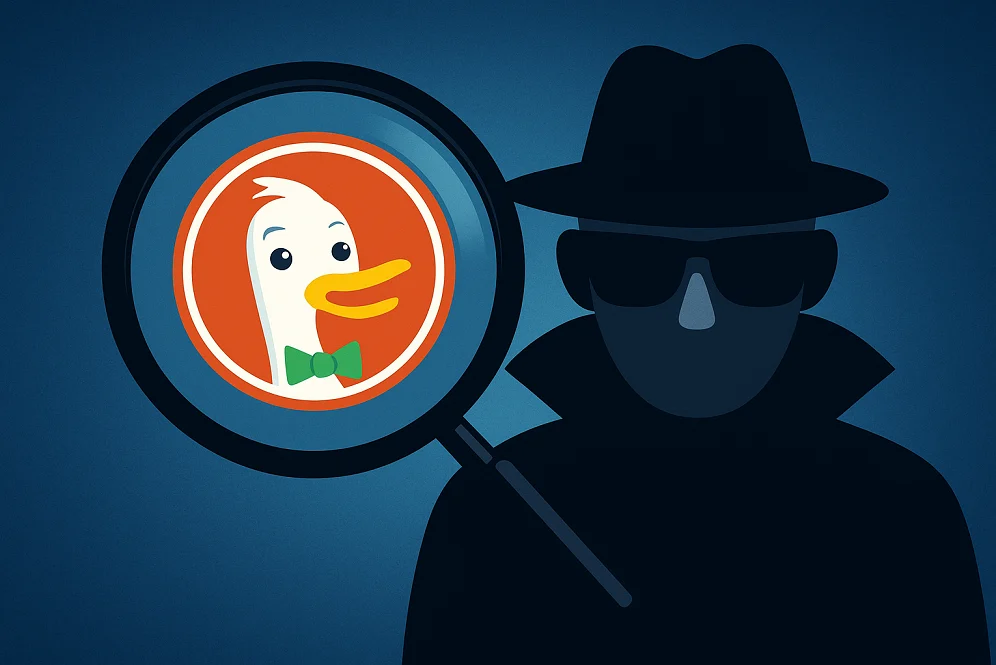
What Makes DuckDuckGo 'Anonymous'?
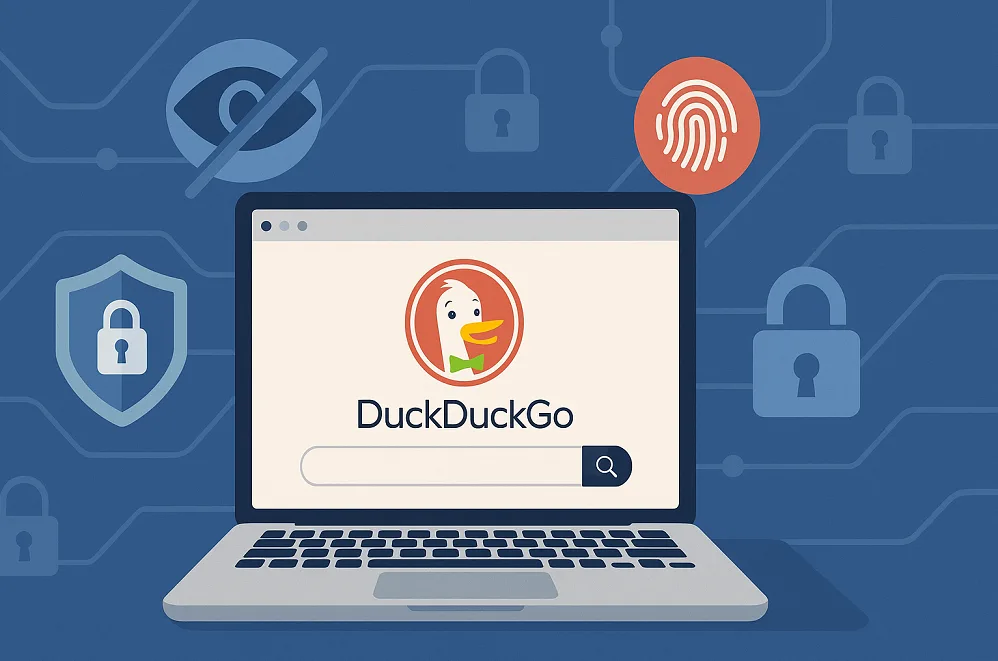
DuckDuckGo's entire infrastructure is built to ensure that your personal data remains protected. Here's how it attempts to keep your data safe:
1. No User Profiling: Unlike Google or Bing, DuckDuckGo doesn't create a user profile. Every time you search, it treats you as a new, anonymous visitor. That means it doesn't store IP addresses, user-agent strings, or search history.
2. Tracker Blocking: DuckDuckGo blocks hidden third-party trackers that many websites use to collect data. These trackers, often used by companies like Google and Facebook, follow users from site to site. The DuckDuckGo app and browser extension help neutralize this surveillance.
3. HTTPS Enforcement: The DuckDuckGo browser forces encrypted connections whenever possible. This ensures that third parties can't eavesdrop on your web activity during data transmission.
4. Global Privacy Control (GPC): DuckDuckGo supports GPC, a new standard that enables users to signal to websites to stop selling or sharing their data. It's built directly into DuckDuckGo's tools.
All of this combined means you're getting a much more private browsing experience than you would with most mainstream platforms.
The Limitations of DuckDuckGo's Anonymity
As strong as DuckDuckGo's privacy protections are, it's important to recognize what it doesn't do.
1. Doesn't Hide Your IP Address:
DuckDuckGo does not function like a VPN. Your internet service provider (ISP), government entities, or even websites you visit can still see your IP address unless you're using a VPN.
2. Doesn't Block Site-Level Tracking:
When you click a link from a DuckDuckGo search result, the site you visit may still track your behavior using cookies, fingerprinting, or other techniques—especially if you don't use additional privacy tools.
3. Uses Bing to Power Results:
DuckDuckGo sources many of its search results from Microsoft's Bing. While DuckDuckGo strips out identifying information before making a request, it still relies on a third-party infrastructure.
4. Local Device Data Can Be Compromised:
Even if DuckDuckGo doesn't store your searches, your device might. Saved cookies, autofill history, or cached pages on your phone or browser could still compromise your anonymity.
5. Limited Ecosystem :
Unlike Google, which offers a full suite of interconnected services, DuckDuckGo's focus is limited. You won't get features like Google Maps, Gmail integration, or YouTube history management—things some users might miss.
Want More Than Just Anonymous Searches? Try AdsPower
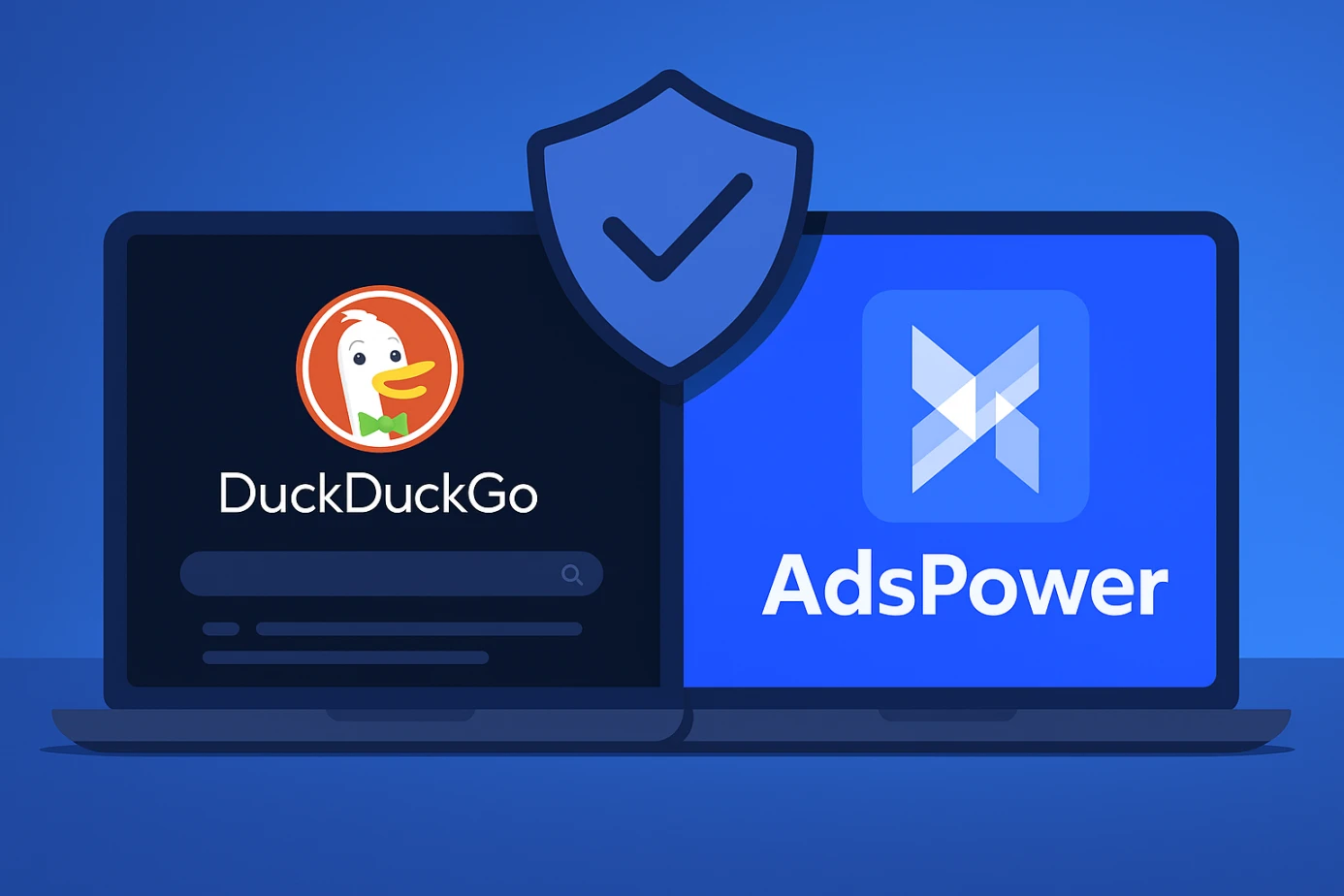
Use DuckDuckGo with AdsPower
DuckDuckGo is excellent for anonymous search, but if you're managing multiple accounts, running affiliate marketing campaigns, or working with different identities online, you'll want something more robust. That's where tools like AdsPower browser come in.
AdsPower is an anti-detect browser designed for multi-account management. It generates different browser environments with unique fingerprints, making each session appear like a different physical device. When combined with DuckDuckGo, this setup provides:
● Complete browser fingerprint isolation
● Protection against behavioral tracking
● Better control over cookies and session data
● A safe way to manage multiple accounts without triggering bans
Guide to set up DuckDuckGo in AdsPower:
● Click New Profile.
● Enter Name, Group, Remark, etc. for the profile.
● Set up IP address in Proxy.
● Type "https://duckduckgo.com" into the box of the Platform section.
● Configure other fingerprints based on your need.
● Save your new profile with OK button.
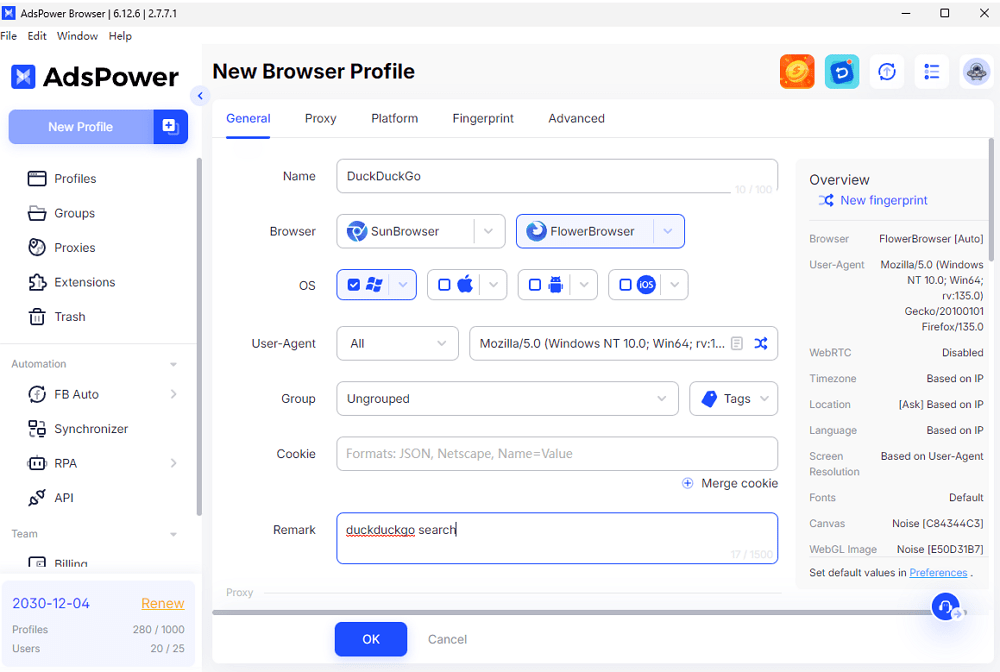
In short, DuckDuckGo handles your searches, and AdsPower handles your browser-level identity. Together, they offer a much deeper level of anonymity.
How to Enhance DuckDuckGo's Privacy with Additional Tools
To truly protect your privacy online, DuckDuckGo should be part of a larger privacy toolkit. Here are some tools you can use alongside it:
● VPN (Virtual Private Network): Hides your IP address and encrypts all internet traffic. Top options include Surfshark, ProtonVPN, and NordVPN.
● Privacy-Focused Email Services: Replace Gmail with ProtonMail or Tutanota to avoid Google's scanning practices.
● Ad and Tracker Blockers: Use uBlock Origin or Privacy Badger to block unwanted scripts.
● Alternative Browsers: Try AdsPower antidetect browser for added privacy.
FAQ
Is DuckDuckGo 100% private?
No online tool is 100% private. DuckDuckGo offers far better privacy than Google, but it doesn’t encrypt all traffic (like a VPN does) or block every type of tracker by default. It's a strong step toward anonymity but not a total solution.
Does DuckDuckGo hide my IP address?
No. DuckDuckGo does not mask your IP address. To hide your IP, you need to use a VPN or the Tor browser alongside DuckDuckGo.
Conclusion
So, is DuckDuckGo actually anonymous? Yes—and no. It’s anonymous in that it doesn’t track or profile users. But it’s not foolproof. Your IP address is still visible, the websites you visit can still track you, and using DuckDuckGo alone won’t make you invisible online.
That said, it’s a powerful tool in the fight for digital privacy, especially when combined with other privacy-focused solutions like AdsPower and a reliable VPN. In a world where your data is currency, using DuckDuckGo is a meaningful first step in reclaiming your privacy.

People Also Read
- Match.com Login Troubleshooting: Fix Access Issues with a Fingerprint Browser
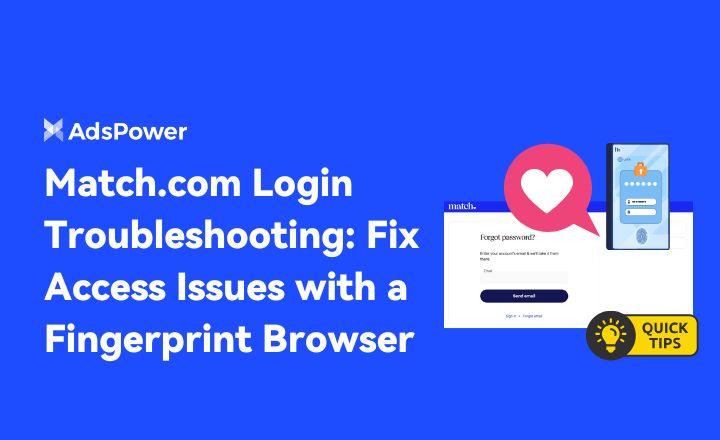
Match.com Login Troubleshooting: Fix Access Issues with a Fingerprint Browser
If Match.com keeps locking you out or rejecting your email, this guide explains what's happening and how to fix it with a fingerprint browser.
- How to Switch Accounts on Chrome (Mobile & Desktop)
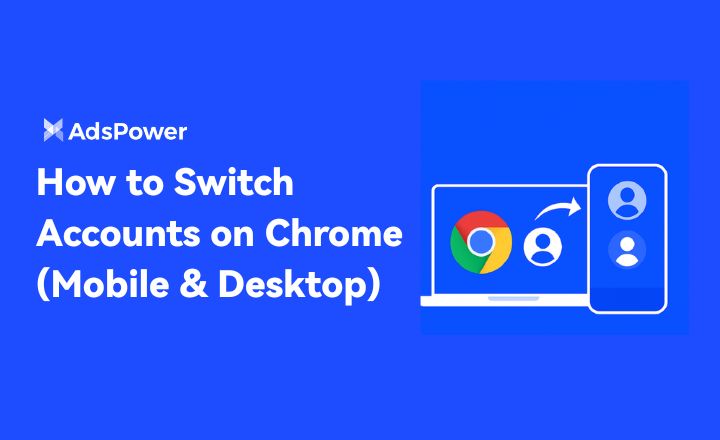
How to Switch Accounts on Chrome (Mobile & Desktop)
Learn how to switch accounts on Chrome for desktop and mobile. Avoid data mix-ups, manage multiple Google accounts safely, and use profiles for separa
- Black Friday Anti-Ban Checklist: Protect Your Ads, Payments, and Ecommerce Accounts
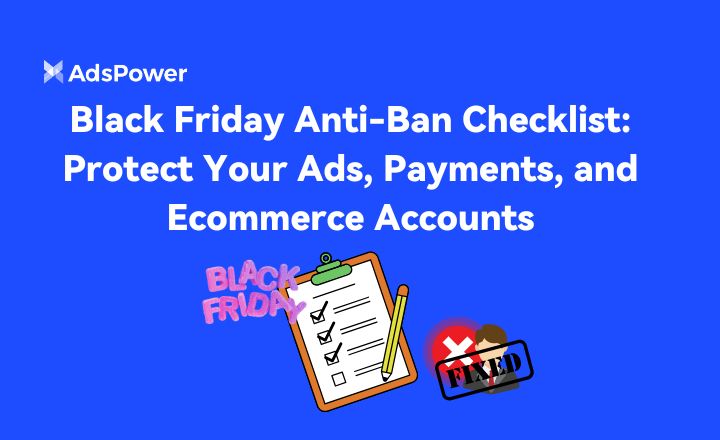
Black Friday Anti-Ban Checklist: Protect Your Ads, Payments, and Ecommerce Accounts
Protect your ads, payment gateways, and ecommerce accounts this Black Friday with a proven anti-ban checklist and AdsPower strategies to avoid flags
- The Solo Marketer's Black Friday Superpower: Scaling Like an Agency with AdsPower

The Solo Marketer's Black Friday Superpower: Scaling Like an Agency with AdsPower
Solo marketer for Black Friday? Learn how to scale your ads, safely manage multiple Facebook & TikTok accounts, and automate tasks with AdsPower.
- Play Roblox Without VPN: Safe and Easy Ways to Access Roblox
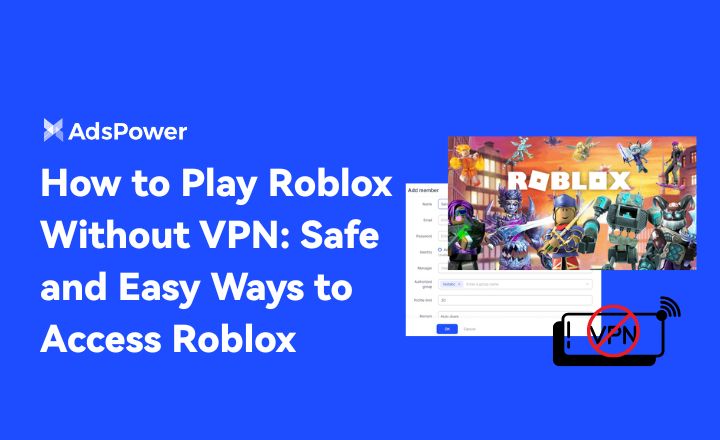
Play Roblox Without VPN: Safe and Easy Ways to Access Roblox
Discover how to play Roblox without a VPN in 2025 safely and easily. Learn working methods, safe practices, and tips to enjoy Roblox anywhere.


